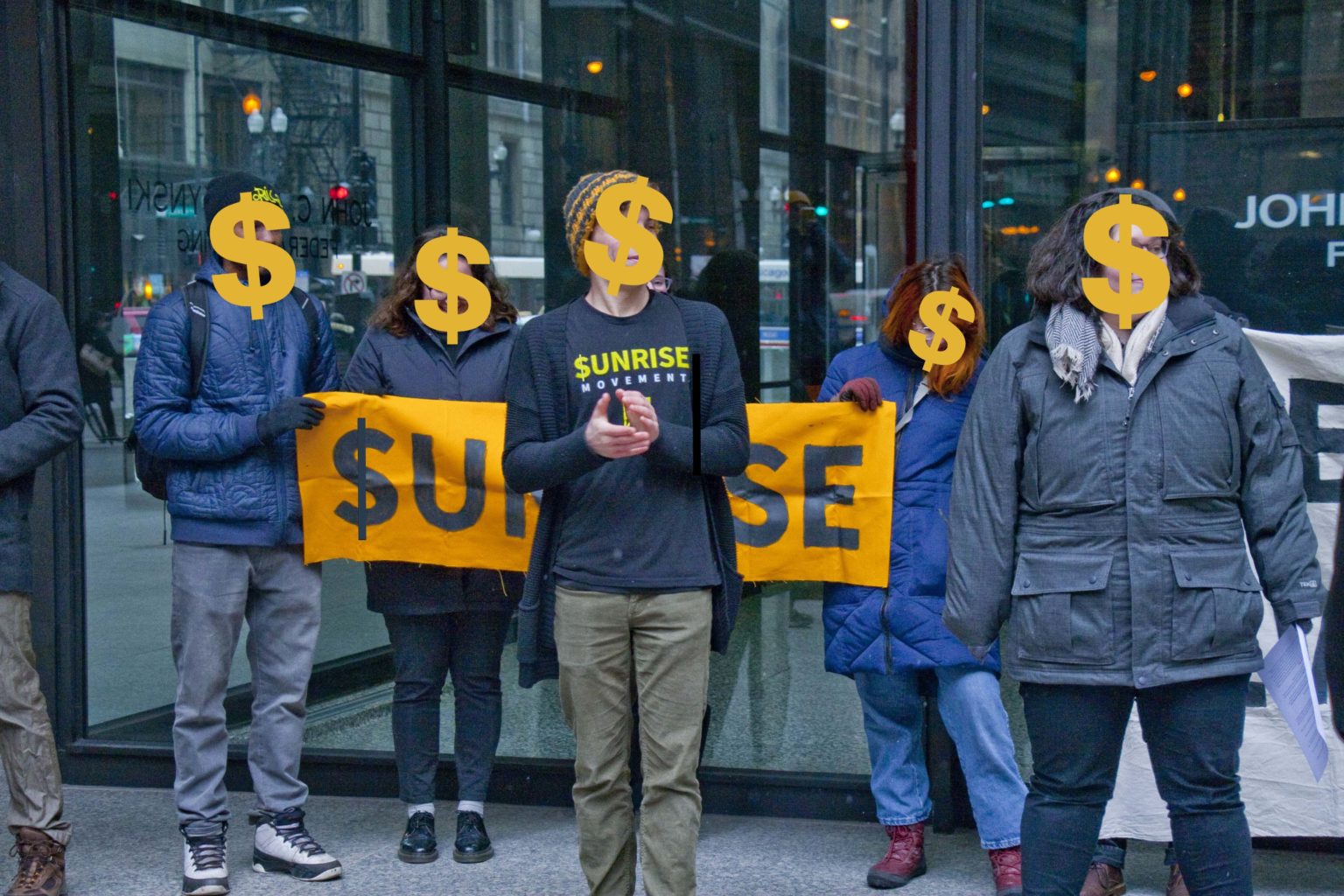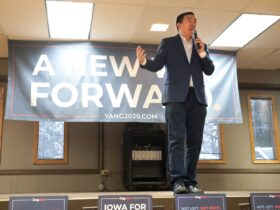In the last few years, the American left has produced scores of new slogan-friendly policies to reshape the American economy. The 2020 primary saw various Democratic candidates promote Medicare for All, a wealth tax, the Green New Deal, a universal basic income, free college, and more. These policies and their slogans were the rallying cries of the Grassroots. Progressive organizations and left-leaning voters rallied around their champions (Elizabeth Warren and Bernie Sanders) against a collage of “corporate Democrats.” Battalions of semi-professional and volunteer activists canvassed the nation enlisting every vote they could get their hands on. These armies of progress were supplied with over a hundred million dollars in small donations, simultaneously proving the might and righteousness of the cause.
And then they lost. Badly.
Despite their electoral defeat, Bernie Sanders and many on the left claim that they won the ideological battle, and that their movement and ideas are ascendant in American politics. If that is the case, then the benefactors of America’s exploitative economy can rest easy knowing their power is safe and sound, even if the prophecy of a future left-wing majority comes to pass. This is because these policies originate from America’s current day civil society organizations, which are primarily inhabited by a highly-educated, righteous class of people who are out to get what they deserve while fixing the world. It is a class divorced from production, and therefore a class almost entirely dedicated to improving the consumer experience.
This dedication to consumer experience can be seen in many progressive, slogan-ready policies. Medicare for All is about shifting the burden of payment for healthcare away from consumers and to the government, and the same can be said for free college. Raising the minimum wage gives low-wage workers more purchasing power to have a higher standard of subsistence, and/or get off welfare programs. This is also true of of universal basic income, which envisions a future where the majority of people have little to no part in production. While wealth taxes have lots of utility, they are predicated on anti-decadence; making the rich pay their fair share, and providing more funding for the government. The aspects of the Green New Deal that are actually related to creating a New Deal centered on climate change simply transform the government into the primary investor in the green energy sector.
“Any structural changes away from capitalism threaten the power and status of [NGOs] and the educated class that inhabits them.”
Beyond uninterest in changing present modes of production, the dependents of civil society are deeply invested in maintaining them. The growth and prosperity of civil society today is deeply entrenched in the neoliberal political economy. Any structural changes away from capitalism threaten the power and status of these organizations and the educated class that inhabits them. Professional activists don’t want a revolution, and they never will.
None of the above is inherent to civil society.
Broadly speaking, society can be broken down into three parts: government, private enterprise, and civil society. Definitionally, civil society is simply an organized means of societal engagement outside of government or business. They can be mediators between government or business and the populace, or managers of the populace on behalf of government or business. Churches, NGOs, nonprofits, and unions all fall under this category.
The theoretical role of civil society is to represent the interests of the citizenry. This can be through advocacy or the organization of civil unrest. The Southern Christian Leadership Conference, primary organizers of the Civil Rights Movement, are a civil society organization. So was the Farmer’s Alliance of the late 19th century. And so is the National Rifle Association. Each of these organizations represent or once represented the common interests of its members.
Civil society represents the interests of the citizenry in a similar way that Adam Smith’s “Invisible hand” guides a free market. Specific organizations representing the interests of the specific groups will, in totality, represent the interests of the citizenry. It is a necessary part of the capitalist system. In order to allow space for private property, the state distances itself from the lives of the people. Civil society bridges that gap.
However, the role of civil society began to expand with the increasingly globalized economy. Institutions like the United Nations, the International Monetary Fund, and the World Bank were created as mediators between governments, and sometimes private enterprises. This process kicked into overdrive with the ascendance of neoliberalism, and by 1997 even Foreign Affairs declared:
The end of the Cold War has brought no mere adjustment among states but a novel redistribution of power among states, markets and civil society. National governments are not simply losing autonomy in a globalizing economy. They are sharing powers – including political, social, and security roles at the core of sovereignty – with businesses, with international organizations, and with a multitude of citizens’ groups, known as non-governmental organizations (NGOs). The steady concentration of power in the hands of states that began in 1648 with the Peace of Westphalia is over, at least for a while.
A lot of hay has been made of the privatization of government and public space for the benefit of corporations. Private enterprise is not alone in enjoying the retreat of public institutions. As the state retreats further and further to make room for private enterprise, civil society gets to build bigger bridges over the widening gap.
In the 1990s, the Clinton administration decided it would be desirable to contract out welfare state programs to NGOs and other civil society organizations. Government would no longer implement policies in these areas. Instead, they would seek to influence the actions of non-profits in the same way a wealthy philanthropist would: conditional funding through grant applications. By 2016, 80% of nonprofit revenue would come from the government, through grants and fees for goods and services.
In anticipation of a loss in revenue due to the coronavirus, and despite private contributions representing a mere 10% of revenue, the 22 members of the Leadership 18—and NGO somewhere between the G-8 and the Big Ten—sent a letter to congress requesting a $60 billion bailout. The letter noted that nonprofits represent about 10% of US GDP and employed at least 12 million people. Identical to how many large corporations after the 2008 financial crises a federal injection of cash was the only thing that could keep them standing.
Congress eventually delivered, making many of the programs created by the subsequent $2.2 trillion coronavirus stimulus package available to nonprofits. Civil society would go on to benefit from the same $500 billion dollars in 2% interest loans as businesses, as well as gain access to the $349 billion Paycheck Protection Program. Itemized charitable donations would now receive a 100% tax deduction; up from the normal 60%. This is all on top of billions of dollars in increased government spending for social welfare programs, many of which are provided through NGOs.
The transformation of the government into a generous donor has transformed civil society organizations. Increasingly, they have become not so much representative of segments of the citizenry as they are self-perpetuating institutions, hoovering up government grants while campaigning for a larger power share.
This includes the policing of America’s tangled web of empire. After the Church Committee in the 1970s, the CIA decided it would be a good idea to get out of the business of overthrowing foreign governments. However, in the eyes of American Empire, there were still governments in need overthrowing. The National Endowment for Democracy was created with ample government funding to carry out American foreign policy interests in hostile or potentially hostile countries. The 2015 Ukrainian Revolution is one of the more recent coups that the NED was deeply involved in.
Other advances of civil society—including the growing influence of think tanks—serve to further undermine the democratic process. Congressional staff are a vital part of the democratic process. Their job is to help whichever congressperson they work for decipher proposed legislation, dissect pertinent issues, and draft legislation of their own. It is an often-thankless job with late nights and sometimes no weekends, and it’s a role that is not valued in today’s political economy.
Congressional salaries pale in comparison to other DC area counterparts. Pay has largely been stagnant over the last 20 years, with the average Chief of Staff making about $150,000 a year, or 40% less than they could be making at a similar non-government position in the nation’s capital. As a result, the average age of a congressional staffer is 31 years-old (a fact with enough notoriety to be satirized in the film In the Loop). Not only are staffers undervalued and inexperienced—there are fewer of them. Since the 1980s, senate staff levels have remained largely unchanged, while the House has shed several staff members in the same period of time.
Into this void ride the well-paid, sometimes former staffers from civil society think tanks. Whether representing industry groups or other special interests, they come from organizations with the funding to hire a sufficient number of experts to write policy agendas and legislation. As congressional staff are incapable of effectively gathering information, think tanks “[see] a market opportunity, create and maintain the organizations which supply that information”. Often, this legislation only serves to decrease the role of government, sending another stream of taxpayer money into corporate or civil enterprises.
With each new grant rush, a glut of higher education jobs are created with the added status bonus of working for a good cause. The Civil Society boom has birthed a Civil Industrial Complex whose denizens form a class of professional activists with interests all of their own. It is a constituency whose careers are built around standing up for citizens and advocating for the downtrodden. It has a charitable and seemingly altruistic outlook. If given the reins of government, it may increase the purchasing power of working people so they can enjoy a more equitable level of consumption.
Yet, it exists and flourishes today because the state has abdicated its responsibilities. Any move away from capitalism by instating a democratic political economy is a threat to its power and material interests. Access to produce, rather than the means of production, will always be its material interests and its priorities.
The Civil Industrial Complex and its class of employees will never subordinate themselves to workers and they will never willingly cede any power. This is the class that constitutes a majority of today’s Progressives and Left: not exactly the friend of capital, but certainly enemies of the working class.









